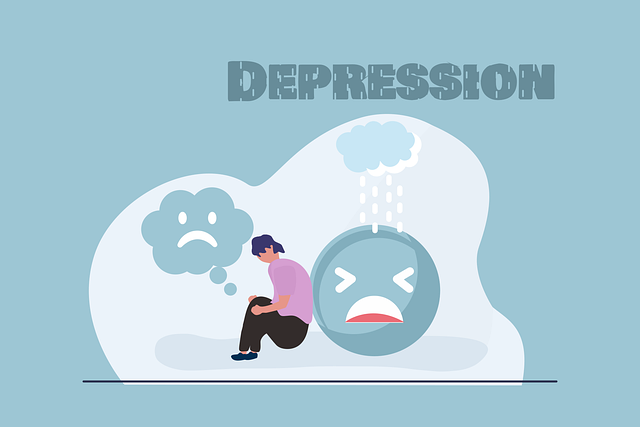Arvada recognizes the deep connection between spiritual/religious beliefs and mental wellness, offering holistic therapy that integrates these elements. Through tailored services, counseling, and self-care practices like meditation, Arvada's Community Outreach Program respects diverse faith communities while addressing emotional conflicts and depression related to spiritual issues. By combining professional therapy with personal belief systems, Arvada residents develop resilience and coping strategies for effective mental health management. Skilled therapists create safe spaces to explore complex emotions tied to faith, providing transformative growth through innovative techniques like podcast series production.
Mental wellness promotion is a multifaceted approach that integrates spiritual and religious beliefs with therapeutic practices. This article delves into the understanding of mental wellness, exploring how spiritual and religious doctrines can influence an individual’s mental health. We present Arvada’s innovative approach to integrating therapy with spiritual-religious issues, offering holistic strategies for enhancing mental health. Additionally, we navigate challenges in addressing sensitive topics within therapy settings, providing insights for professionals aiming to support clients on their journeys to improved mental wellness.
- Understanding Mental Wellness: The Role of Spiritual and Religious Beliefs
- Arvada's Approach to Integrating Therapy with Spiritual-Religious Issues
- Strategies for Promoting Mental Health in a Holistic Manner
- Overcoming Challenges: Navigating Sensitive Topics in Therapy Settings
Understanding Mental Wellness: The Role of Spiritual and Religious Beliefs

Mental wellness is a holistic concept that encompasses emotional, psychological, and spiritual well-being. For many individuals, especially those in Arvada seeking therapy, understanding and integrating their spiritual or religious beliefs into mental health practices can significantly enhance self-care. The connection between spirituality and mental wellness has been recognized by therapists and counselors who incorporate these beliefs into therapeutic approaches, providing a more comprehensive healing environment.
Spiritual and religious doctrines often offer guidance on coping with life’s challenges, trauma support services, and emotional well-being promotion techniques. These beliefs can provide individuals with a sense of purpose, resilience, and meaning, contributing to improved mental health outcomes. Incorporating self-care practices rooted in spiritual or religious traditions may include meditation, prayer, or engaging in rituals that promote mindfulness and inner peace, ultimately fostering better overall mental wellness.
Arvada's Approach to Integrating Therapy with Spiritual-Religious Issues

Arvada recognizes that mental wellness is deeply intertwined with an individual’s spiritual and religious beliefs. Many people find solace and strength in their faith, but they may also face unique challenges when it comes to their mental health. To address this, Arvada takes a holistic approach, integrating therapy with spiritual-religious issues. This means creating a safe space for individuals to explore and express their faith while also receiving professional support for their mental wellness.
Through its Community Outreach Program Implementation, Arvada connects with diverse religious communities, offering tailored services that respect and incorporate participants’ spiritual backgrounds. This includes providing counseling sessions that use Conflict Resolution Techniques to help individuals navigate difficult emotions or conflicts within their faith communities. Moreover, by focusing on Depression Prevention, Arvada ensures that those struggling with mental health issues related to their spiritual-religious beliefs receive comprehensive care, fostering a sense of balance and well-being in both aspects of their lives.
Strategies for Promoting Mental Health in a Holistic Manner

Promoting mental wellness involves a holistic approach that encompasses various aspects of an individual’s life. In Arvada, where spiritual and religious issues play a significant role in many residents’ lives, integrating therapy with personal beliefs can be highly effective. Self-Care Routine Development for Better Mental Health is crucial; this includes practices such as mindfulness meditation, regular exercise, and maintaining a balanced diet. Engaging in Self-Awareness Exercises like journaling or attending support groups allows individuals to process their thoughts and emotions, fostering resilience.
Building resilience is another key strategy. This can be achieved through various means, including setting achievable goals, practicing positive self-talk, and learning effective coping mechanisms. By combining these approaches with professional therapy tailored to individual needs, Arvada’s residents can navigate life’s challenges more effectively while maintaining a strong mental health foundation.
Overcoming Challenges: Navigating Sensitive Topics in Therapy Settings

Navigating sensitive topics like spiritual or religious issues in therapy can be challenging, but it’s a crucial aspect of comprehensive mental wellness promotion. Many individuals seek support for emotional struggles that intertwine with their faith or personal beliefs. In Arvada, where diverse communities thrive, spiritual-religious therapy becomes an essential tool to foster understanding and healing. Therapists skilled in this area employ unique communication strategies to create safe spaces, encouraging clients to explore complex emotions without fear of judgment.
Effective therapy sessions often involve active listening, empathy, and the use of mental wellness podcast series production techniques to help clients process their experiences. By integrating Emotional Well-being Promotion Techniques, therapists facilitate a supportive environment that respects individual beliefs while addressing underlying mental health concerns. This nuanced approach allows for profound insights and transformative growth, ultimately empowering individuals to overcome challenges related to their spiritual or religious identities.
Mental wellness promotion requires a holistic approach that integrates spiritual and religious beliefs, as evidenced by Arvada’s successful strategy. By combining therapy with an understanding of spiritual-religious issues, professionals can effectively address sensitive topics and foster meaningful healing. This comprehensive method, which encompasses strategies for holistic mental health promotion, enables individuals to overcome challenges and navigate their personal journeys towards well-being, ensuring that no aspect of a person—mind, body, or spirit—is left unaddressed.














